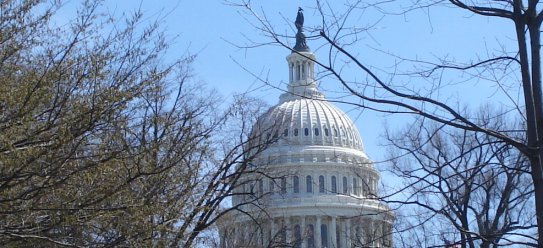ESA Policy News: October 29
Here are some highlights from the latest ESA Policy News by ESA’s Science Policy Analyst, Terence Houston.
Here are some highlights from the latest ESA Policy News by ESA’s Science Policy Analyst, Terence Houston.
Here are some highlights from the latest ESA Policy News by ESA’s Science Policy Analyst, Terence Houston.

A primary role of policymakers is to serve as the voice of the community they represent. At the federal level, hearing elected officials speak on the House or Senate floor or at a town hall, is one channel citizens use to stay engaged in the issues of the day. Wouldn’t it be wonderful if lawmakers could more often use these forums to tout what the latest scientific and technological advancements are contributing to their community?
Since oil began leaking from a rig in the Gulf of Mexico last April, concerns regarding the safety of the region’s seafood abounded. Now, more than two months after the leak was sealed, public officials, federal scientists and even President Obama have all been saying that seafood from the Gulf region is safe to eat. So why aren’t consumers digging in? Several local leaders from the region impacted by the oil spill addressed this topic last week during the most recent hearing of the National Commission on the British Petroleum Deepwater Horizon Oil Spill and Offshore Drilling in Washington, D.C.
Here are some highlights from the latest ESA Policy News by ESA’s Science Policy Analyst, Terence Houston.
Here are some highlights from the latest ESA Policy News by ESA’s Science Policy Analyst, Terence Houston. Read the full Policy News here. SENATE: SENIOR DEMS SEEK ACTION ON ENVIRONMENTAL MEASURES While the Senate seems unlikely to approve an energy bill during the few weeks it reconvenes before the November elections, it may consider measures on U.S. Environmental Protection Agency…
According to the Obama administration, for the first time since the creation of the Chesapeake Bay Program in 1983, the federal government is using its full force to prioritize restoration of the Chesapeake Bay. Speakers met on September 10 for a briefing in Washington, DC to discuss the government’s significantly expanded role in preserving the Bay and its watershed.
The second meeting of the National Commission on the BP Deepwater Horizon Oil Spill and Offshore Drilling highlighted both deficiencies in the Obama Administration’s and British Petroleum’s handling of the spill, as well as methods to improve coordination between those two parties.
Participants in the hearing, which occurred August 25 in Washington, DC, sought to examine regulatory oversight issues in offshore drilling. One point of consensus between both commissioners and several of the panelists was that scientific input into the review process needed to be increased.
Here are some highlights from the latest ESA Policy News by ESA’s Science Policy Analyst, Terence Houston.
What is an innovative method to reduce both heating and cooling in buildings, reduce storm water run-off, preserve natural habitats and even refrigerate warehouse beer? According to scientists at the Ecological Society of America’s 95th Annual Meeting in Pittsburgh: green roofs. These vegetated roofs, as the ecologists explained yesterday in “Rooftop ecology: what is a green roof and why should ecologists care?” provide a wide array of economic, architectural and environmental benefits.